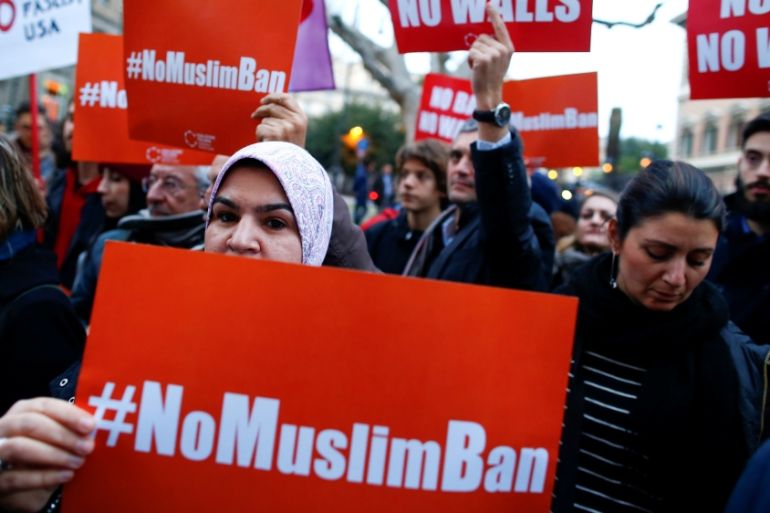US Supreme Court set to rule on Trump’s travel ban
The court’s conservative majority signaled earlier this year support for the president’s controversial policy.

The United States Supreme Court, which is winding down its nine-month term, will issue rulings this week in its few remaining cases including a major one on the legality of President Donald Trump‘s ban on people from five Muslim-majority countries.
The justices began their term in October and, as is their usual practice, aim to make all their rulings by the end of June.
Keep reading
list of 4 itemsUS House passes bill to prevent another ‘Muslim ban’
Dreams dashed: Trump’s Muslim ban damage may never be undone
Will Biden’s repeal of Trump’s travel ban reverse its impact?
The travel ban case was argued on April 25, with the court’s conservative majority signalling support for Trump’s policy in a significant test of presidential powers.
Lower courts had blocked the travel ban, the third version of a policy Trump first pursued a week after taking office last year. But on December 4, the high court allowed it to go fully into effect while the legal challenge continued.
The challengers, led by the state of Hawaii, have argued the policy was motivated by Trump’s enmity towards Muslims. Lower courts have decided the ban violated federal immigration law and the US Constitution’s prohibition on the government favouring one religion over another.
The White House maintains the ban targets individuals from countries that have failed to provide enough information to allow for proper vetting of prospective travellers. Trump also says it is needed on matters of national security.
The current ban, announced in September, prohibits entry into the US by most people from Iran, Libya, Somalia, Syria and Yemen.
It has been widely criticised by human rights and refugee advocacy groups.
When the first version of the ban was announced shortly after Trump took office, protests erupted nationwide, with many taking to airports and the streets to denounce the move as “unconstitutional”.
The nine justices are also due to decide other politically sensitive cases including on whether non-union workers have to pay fees to unions representing certain public-sector workers such as police and teachers, and the legality of California regulations on clinics that steer women with unplanned pregnancies away from abortion.